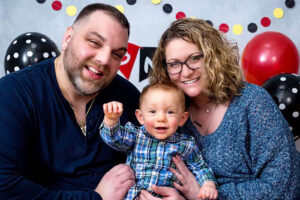From the National Comprehensive Cancer Network
June McDonnell saw retirement as an opportunity to travel—and she wasn’t about to let cancer get in her way. Seven months after a stem-cell transplant for multiple myeloma—a plasma cell cancer—the disease was in remission, and June was feeling great. She and her husband, John, heard about an exciting African safari in Kenya and sent in a deposit.
But the trip required, among other immunizations, a yellow fever vaccination, and her oncologist at Moffitt Cancer Center in Tampa, Florida, said June couldn’t receive a live vaccine so soon after the transplant. Not wanting to jeopardize June’s health or have her travel unprotected, the couple canceled the trip.
Despite the McDonnells’ experience, many people can and do travel during and after cancer treatment.
Anxiety certainly may arise over making a trip, especially the first time following diagnosis. However, careful planning and preparation can help ensure that travel is as safe, enjoyable, and stress-free as possible.
GETTING READY
Consult with your medical team.
Communicate to your oncologist and other healthcare providers all your travel plans, and be certain they sign off on the trip before you book tickets or make reservations. Michael A. Zevon, chairman of the Department of Psychosocial Oncology at Roswell Park Cancer Institute in Buffalo, New York, says it is important to include family members and other travel companions in these discussions so they can ask questions, understand your potential needs, and feel comfortable about traveling with you. Take along the phone numbers of your health care providers in case you have to reach them while on your trip. Make sure you have a complete list of all medications you are taking, including the dosages, schedules, and the generic names (since these may be under different trade names in other countries).
Do some advance planning.
Make sure you notify the appropriate facilities of any special requirements you may have. For instance, if you are flying, you may want to book early to ensure you get a seat with additional leg room or one on an aisle for frequent trips to the lavatory. You may want to notify the hotel of special requests, such as a first-floor room or one closest to an elevator, and make sure they have adequate handicap accessibility if required. Airlines, car rental agencies, and cruise lines should also get notification ahead of time of any special considerations. Also, notify the airline in advance if you may need oxygen.
Consider ongoing medical needs.
Be sure to travel with all the medications and supplies you will need during your time away, plus some extra should you lose or misplace them.
Ask your doctor about additional drugs you might take to combat treatment side effects, motion sickness, or traveler’s diarrhea. Carry a list of all your medications, the dosages, and any allergies, and bring additional signed prescriptions for backup. Keep your drugs in their original containers and pack them in carry-on bags, not in checked luggage, which can sometimes get lost.
Get documentation.
Have your doctor write a letter on official stationery explaining your condition, treatment regimen, and medications, and always keep it with you. This is especially useful if you have an IV port or another internal device so you have documents to show security screeners. You also might consider getting a medical alert bracelet. You may need a note or form signed by your doctor if you require syringes for medication or portable oxygen tanks to be allowed onboard a plane.
Check immunizations.
Visiting an exotic locale or developing country may require particular vaccinations; however, as June McDonnell found out, some vaccines are not advisable for people diagnosed with certain cancers or who are undergoing chemotherapy or other treatment because their immune systems are already weakened. See the website of the Centers for Disease Control and Prevention for immunization information for special-needs travelers.
Plan for the unexpected.
Well before you leave, compile a list of what Zevon calls “go-to” resources—a cancer hospital, doctor, and emergency facility at your destination—in case something goes wrong. This may be difficult if you’re taking a cruise, but notifying the cruise line of your medical condition and potential complications could alleviate problems later.
Having the contacts beforehand will enhance peace of mind for all involved.
Ensure your insurance.
Check with your insurance company to see what medical coverage it provides when you’re away from home. Find out if any medical care you may receive at your destination is covered, and whether there are preferred, or in-network, facilities under your plan. You may want to purchase short-term travelers insurance and medical evacuation coverage. The International Association for Medical Assistance to Travelers and the U.S. Department of State suggest options for people traveling outside the United States. Keep your insurance card with you at all times.
DURING TRAVEL
Get assistance.
To conserve your strength and minimize stress, reserve a wheelchair or other assistive transport at airports or train stations and ask to pre-board. Distances are often considerable between terminals, and the walk can be tiring.
Take precautions if flying.
Long flights pose a risk of blood clots for everyone; certain cancers, such as lung, stomach, and bowel cancer, and some treatments, such as hormonal therapy for breast cancer, may increase that risk. Wear loose clothing, walk around the cabin periodically, and do light leg exercises to stimulate blood circulation. Stay hydrated by drinking water and avoiding alcohol. If you have anemia, ask your doctor if you will need oxygen to help you adjust to the cabin air pressure.
Prevent infection.
Wash your hands often and see that those with you wash frequently. Use sanitizing gels or wipes to clean surfaces and utensils. Drink only bottled water, avoid ice, and eat only well-cooked foods.
Maintain energy.
It may be hard to eat regular meals or find appealing food while traveling. Take along a stash of crackers, energy bars, or other foods to help prevent nausea and boost energy.
Practice sun-sense.
Chemotherapy, certain antibiotics, and radiation treatment can increase your skin’s sensitivity to the sun. Generously apply sunscreen and always wear protective hats and clothing when outdoors.
Be flexible.
Fatigue is a big component of cancer and its treatment, and most cancer patients will have good and bad days. Pace yourself reasonably and don’t try to cram in too many activities, says Zevon. Allow ample time to rest and recharge.
Don’t ignore symptoms.
Seek immediate emergency medical care if you experience a high fever, shortness of breath, sudden nausea or vomiting, or some new pain or symptom, advises Jill Nestico, a nurse practitioner in Roswell’s Department of Medical Oncology. Ask the on-call physician to contact your oncologist to discuss your medical situation and how best to respond. This is when all of your lists and advance work pay off.
SAVOR THE MOMENTS
Wherever you choose to go, focus on enjoyment, Zevon says. After all, the point of getting away is to have fun and return home refreshed. Traveling can be a tiring undertaking even in the best of health, so make sure you leave time for enough rest and downtime. Consider scheduling in some days among your sightseeing to do only light activity or to enjoy some pure relaxation.
As for the McDonnells, after canceling their Africa trip, they planned a new excursion. Receiving the OK from June’s doctors, the Florida couple flew to England and took a two-week cruise through the Baltic nations. They had a wonderful time.







